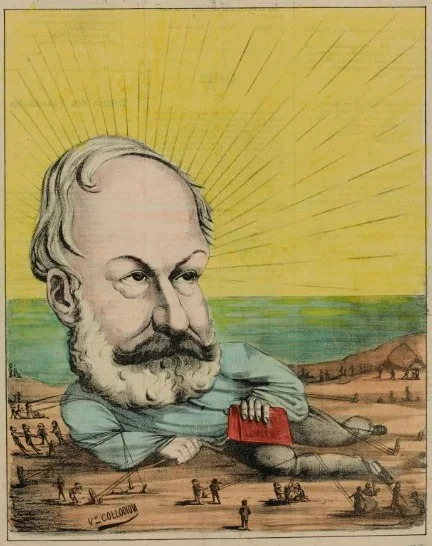Victor Hugo: A Voice That Echoes Across Centuries
Victor Hugo is more than just a name in French literature. He is a national icon, a global voice for social justice, and a masterful storyteller whose works have inspired revolutions, films, and political thought for nearly two centuries. Born in 1802 and living through one of France’s most turbulent historical periods, Hugo wrote with passion and purpose, leaving behind a legacy that still resonates today.
Early Life and Literary Rise
Victor-Marie Hugo was born on February 26, 1802, in Besançon, France, into a family divided by ideology. His father was a general in Napoleon’s army, while his mother leaned toward royalist and Catholic sympathies. These early contradictions influenced Hugo’s worldview and later his writing.
Hugo's literary career began in his teenage years, and by the age of 20, he had already published his first book of poetry, which gained him royal recognition. In 1831, he published Notre-Dame de Paris (known in English as The Hunchback of Notre-Dame), a novel that reignited interest in Gothic architecture and challenged social norms of the time.
Les Misérables: Literature as a Political Act
Published in 1862, Les Misérables is widely regarded as Victor Hugo’s magnum opus. It is a sweeping epic that explores justice, redemption, poverty, and revolution in 19th-century France. The story of Jean Valjean, the reformed convict, struck a chord with readers worldwide and has since been adapted into countless plays, films, and musicals.Hugo did not write Les Misérables simply to entertain. It was a profound political act. He wanted to highlight the injustices of the legal system, the cruelty of poverty, and the resilience of the human spirit. His preface famously stated that as long as social misery exists, books like Les Misérables will be necessary.
Political Exile and Advocacy
Victor Hugo's outspokenness wasn’t limited to his novels. He was also a passionate political thinker and activist. In 1848, he was elected to the National Assembly during France’s Second Republic. However, he broke with Napoleon III over the latter's authoritarian regime, leading to Hugo's self-imposed exile.
From 1851 to 1870, Hugo lived in exile, primarily in Guernsey. During this time, he wrote many of his most important political essays and poems, including Les Châtiments, a scathing critique of Napoleon III. Despite being far from France, Hugo's influence only grew stronger as he advocated for the abolition of the death penalty, universal suffrage, and freedom of the press.
A Multidimensional Talent
While best known for his novels and poetry, Hugo was also a prolific playwright and artist. His early works helped usher in the Romantic movement in French theatre, breaking from classical traditions and emphasizing emotion, individuality, and social commentary.Few know that Hugo also created over 4,000 drawings, many of them abstract and hauntingly modern. These works, largely produced during his exile, reveal a deeply introspective and imaginative side to the author.
Legacy and National Reverence
Victor Hugo died on May 22, 1885, at the age of 83. His funeral procession drew more than two million people into the streets of Paris. He was buried in the Panthéon, the secular mausoleum that houses France’s greatest figures, a testament to the national reverence he commanded.
His legacy is visible everywhere—in literature, film, architecture (due to the revival sparked by Notre-Dame de Paris), and political thought. Hugo is remembered not only as a literary genius but also as a champion of the poor, the oppressed, and the voiceless.
Why Victor Hugo Still Matters
In an age of rising inequality, political upheaval, and cultural transformation, Victor Hugo's works remain strikingly relevant. His characters are timeless, his messages universal. Through the lens of fiction, he exposed the very real struggles of humanity and argued for a more just and compassionate world.
Whether you're walking past the Notre-Dame Cathedral, attending a performance of Les Misérables, or reading a passage from Les Contemplations, you are engaging with a voice that continues to speak truth to power.
Keywords: Victor Hugo biography, Les Misérables author, French literature icons, Notre-Dame de Paris, Victor Hugo exile, Victor Hugo political views, Romanticism France, Hugo poetry, French authors, Victor Hugo legacy




Comments
Post a Comment